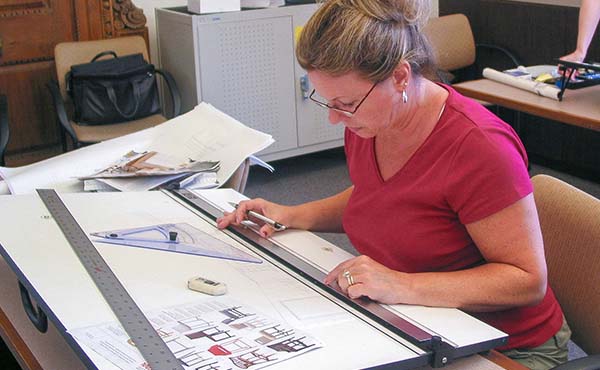
If you’re considering a Master of Arts in Interior Design, you may be hoping to break into the field and start a new professional chapter in your life.
Or perhaps you’ve already dabbled in design but are looking for more formal training in fundamentals and technical competencies.
Either way, you’re on the hunt for the interior design master’s degrees that fit your schedule and meet your high expectations. But do you really know the difference between a great program and a mediocre one?
To help you navigate your interior design education journey, we compiled this helpful guide based on insight from Rob Hardy, director of the Master’s in Interior Design and graduate certificate programs at Fairfield University.
5 Signs of a Top Interior Design Master’s Degree
Not all programs are created equally. Be on the lookout for these five features the best interior design master’s degrees tend to have.
1. Experienced Faculty
In such a diverse discipline, there are dozens of specialties and niche careers to consider. When researching interior design master’s degrees, seek out the programs led by instructors who are seasoned experts in the field.
Fairfield’s award-winning faculty have extensive knowledge in topics such as residential interiors and sustainable design. Many are also contributors to some of the most respected publications in the industry. Over the course of the program, you’ll gain practical knowledge and professional guidance from the insight they’ve accumulated through decades of teaching and designing.
2. Emphasis on Relationship Building and Selling Your Ideas
You need more than just good taste to become an interior designer. As a creative professional who works very closely with clients, excellent listening and interpersonal communication skills are paramount to success. Most interior designers grow their business through word-of-mouth recommendations from satisfied customers, so taking a little extra time to understand their point of view can pay off in a big way.
Being a great salesperson is a core part of a successful interior design business, according to Hardy. “When you first start out with a new client, you’re essentially selling yourself and your experience,” he explains. “You need to make them feel they can trust you with this important project.”
The next step is presenting your vision for the project at hand and getting them excited about your ideas. It may sound simple, but this crucial skill takes a lot of time to fully master. Hardy believes confidence and enthusiasm are two of the most important qualities for an interior designer. That’s why Fairfield’s curriculum requires students to continually practice pitching designs and vocalizing their visions in front of their classmates.
3. Small Class Sizes
If you’re truly passionate about learning interior design, you’re going to put a lot of time and effort into your assignments. For students, nothing is more frustrating than spending hours on a design and receiving minimal feedback. That’s why small class sizes are crucial, especially at the master’s level.
At Fairfield, the online Master of Arts in Interior Design program is a cohort of about 25 students. “We keep our classes small on purpose, even in our online courses,” Hardy explains. “Our goal is to replicate the experience of being in a physical classroom and build that sense of connection and community.”
Small classes also give professors the chance to get to know students and provide the kind of detailed, in-depth critiques they need to truly elevate their craft. Sessions are synchronous, and students are required to stay on camera throughout, though classes are also recorded and uploaded online for additional convenience.
4. Opportunities to Gain Professional Experience While in School
Unlike other post-graduate degrees, interior design master’s scholars are encouraged to start working as soon as possible. Applying classroom theory to real-life projects is an important part of the learning process for designers — plus, it allows you to build your portfolio while still in school. During the final semester of the program, Fairfield interior design students also get the chance to present an extensive capstone research project to a panel of industry experts.
This wealth of professional experience makes it easy for students to enter the workforce. In fact, 99 percent of Fairfield University’s MA in Interior Design students are employed in the field after graduation.
5. Curriculum that Prepares Students to Pass Licensure Exams
While you don’t technically need a license or a degree to work as an interior designer, becoming certified will almost certainly lead to more opportunities throughout your career. Fairfield’s interior design master’s program qualifies students to sit for the National Council for Interior Design Qualification (NCIDQ) Examination and become professional members of the American Society of Interior Designers (ASID).
Hardy shares that while not all of his former students have elected to sit for the exam, those who have taken it passed with flying colors. He fondly recalls that his very first student who passed the NCIDQ rang him to say, “I just had to call you first, I haven’t even told my mom yet!”



